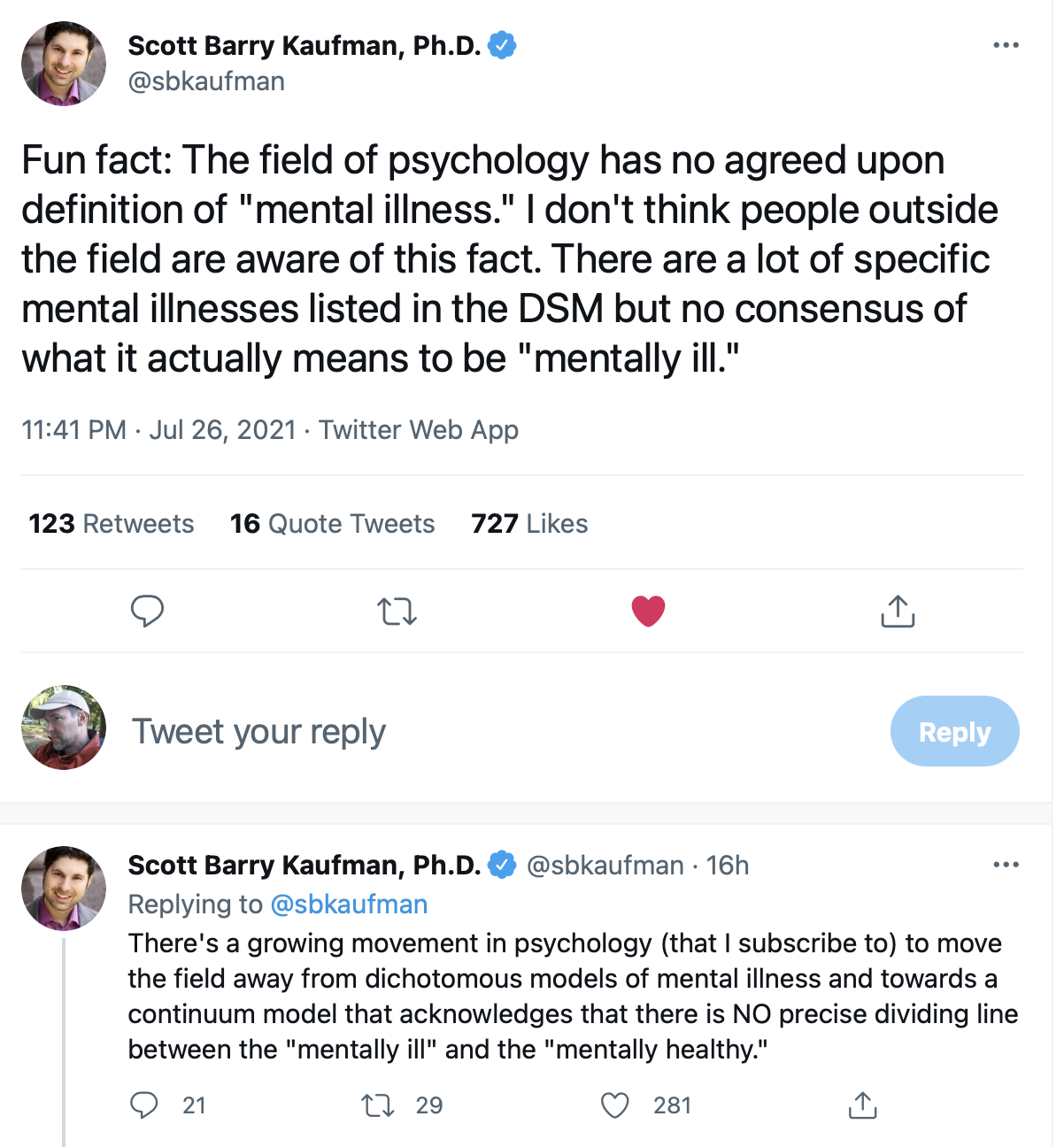 Fascinating. So what is it, at bottom, to call someone “mentally ill? Is it essentially name calling? We are surrounded highly functional people who periodically and temporarily seem highly dysfunctional in specific ways. We have been cobbled together by natural selection, living Rube Goldberg machines, we are also equipped with sophisticated built-in PR departments that make it seem like we are more purposeful, more functional than we actually are. Further, Randolph Nesse has made a strong case that many “mental illnesses” are adaptive. What does it help use a global stamp of “mentally ill”?
Fascinating. So what is it, at bottom, to call someone “mentally ill? Is it essentially name calling? We are surrounded highly functional people who periodically and temporarily seem highly dysfunctional in specific ways. We have been cobbled together by natural selection, living Rube Goldberg machines, we are also equipped with sophisticated built-in PR departments that make it seem like we are more purposeful, more functional than we actually are. Further, Randolph Nesse has made a strong case that many “mental illnesses” are adaptive. What does it help use a global stamp of “mentally ill”?
Here’s an excerpt from Nesse’s 2020 book, Good Reasons for Bad Feelings:
The question “What is a mental disorder? ”has been addressed by Jerome Wakefield, a social worker, clinician, researcher, and philosopher at New York University. His pithy conclusion is that mental disorders are characterized by “harmful dysfunction.”“Dysfunction”means a malfunction in a useful system shaped by natural selection. “Harmful”means that the dysfunction causes suffering or other harm to the individual. Wakefield’s analysis grounds psychiatric diagnosis in an evolutionary understanding of the normal functions of brain/mind, the same way the rest of medicine understands pathology in the context of normal physiology. His cogent analysis has, however, had little influence on how psychiatrists make diagnoses.


This prompted a memory to emerge and gave me insight on what I did. I had a stroke at the age of 30 and eventually, right on target went into deep depression 18 months later. I wound up in major depression for 25 years until I was chemically kicked out of it. Which is when I realized that I had lost most of my adult life to a disease worsened by betrayal.
My plans to change living arrangements required that I wait until 2005, at which point I could fully support two households. Come 2005 our younger daughter was near death and we spent everything we had and incurred $400K in debt, but she survived so it doesn’t matter. I could leave, but my daughter would die. I could stay, but I would effectively die. To survive, I put myself into major depression again, something I knew how to do given my academic and professional background. I also knew how to treat it, but chose not to in order to avoid the two unacceptable outcomes.
Mental illness can be an adaptive measure, and psychiatrists recognize this in dissociative identity disorder, formerly called multiple personality disorder. The illness is an adaptation to protect the core self.